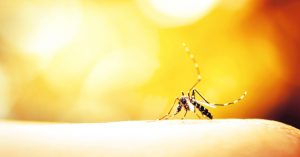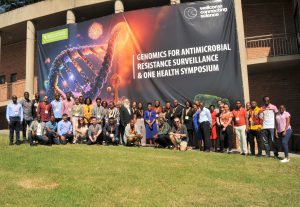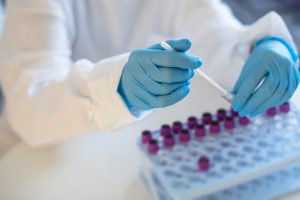Potent HIV antibodies fast tracks the development of an AIDS vaccine
The discovery of how a woman’s body responded to her HIV infection by making potent antibodies (called broadly neutralising antibodies, because they are able to kill multiple strains of HIV from across the world), was reported today by a consortium of AIDS researchers jointly with scientists from the United States. The study, published in the prestigious scientific journal, Nature, describes how the research team found and identified these antibodies in her blood and then duplicated them by cloning the antibodies in the laboratory. The cloned antibodies were then used in a series of experiments in the laboratory to reveal the pathway followed by her immune system to make these potent antibodies.
All HIV infected people respond to HIV by making antibodies. In most patients, these antibodies are unable to kill a wide range of HIV. However, in a few infected people, they naturally make antibodies that kill (neutralise) many different kinds of HIV (i.e. they are broadly neutralising antibodies). “Broadly neutralising antibodies have some unusual features,” says Dr Penny Moore, one of the lead South African scientists on the study based at the National Institute for Communicable Disease (NICD). “The outer covering (envelope) of HIV has a coating of sugars that prevents antibodies from reaching the surface to neutralise the virus. This patient’s antibodies had ‘long arms’, which enabled them to reach through the sugar coat that protects HIV.” Researchers found that these antibodies had ‘long arms’ right at the outset. “We discovered that some HIV antibodies are born with ‘long arms’, requiring less time and fewer changes to become effective in killing HIV, ”said Dr Moore.
In 2012, this team of South African researchers discovered that a shift in the position of one sugar molecule on the surface of the virus led to the development of broadly neutralising antibodies against HIV. Professor Lynn Morris, who leads the research team at the National Institute for Communicable Diseases (NICD) commented, “In this new publication, we have been able to isolate a broadly neutralising antibody from this volunteer and trace its origins to understand exactly how it arose. This could lead to new HIV vaccine strategies that are able to stimulate the rare precursors of these protective antibodies.”
The identification and successful cloning of these special antibodies enables the researchers to make sufficiently large quantities for further testing, similar to the way a medicine used to prevent or treat HIV would be tested. Broadly neutralising antibodies have previously been shown to be effective in preventing and treating HIV infection in animals. The next step is to develop protocols for animal studies. The future studies on animals and humans are being supported by the Strategic Health Innovation Partnerships (SHIP), a unit of the South African Medical Research Council, with funding from the Department of Science and Technology.
Collaboration with South African researchers includes scientists from the National Institute for Communicable Diseases, the University of KwaZulu-Natal and the University of Cape Town, worked jointly with US partners based at the Vaccine Research Center of the National Institute of Allergy and Infectious Diseases, part of the National Institutes of Health, and Columbia University in New York, to conduct this research.
This research was primarily funded by the US National Institutes of Health’s Vaccine Research Center and the South African Department of Science and Technology. The South African researchers also have fellowships from the Wellcome Trust, the Fogarty International Center, the National Research Foundation and the Poliomyelitis Research Foundation.
“The National Health Laboratory Service (NHLS) is committed to deliver on its mandate of relevant research which will improve the lives of South Africans and in this case impact treatment on a global scale. We are extremely proud of this contribution to HIV research by our committed scientists. This partnership with the key collaborators is proof that together we can make a significant impact to the health agenda”, says Sagie Pillay, NHLS CEO.
The Minister of Health, Dr Aaron Motsoaledi, pointed out: “South Africa has the largest burden of HIV infection globally; we are encouraged to see South African scientists undertake this intense research to find solutions to preventing HIV infection. We anticipate that this research will fast track the development of an AIDS vaccine.”
End
Media enquiries:
Kaamini Reddy
Executive Manager
Communication, Marketing and PR
National Health Laboratory Service
Kaamini.reddy@nhls.ac.za
011 386 6008
072 620 6146




